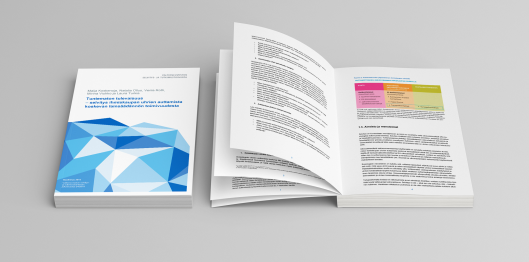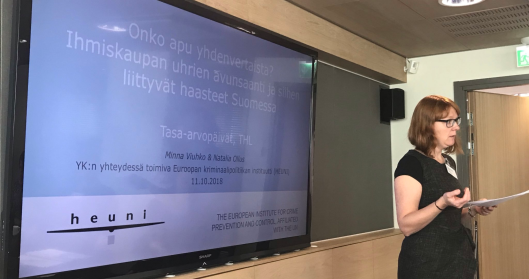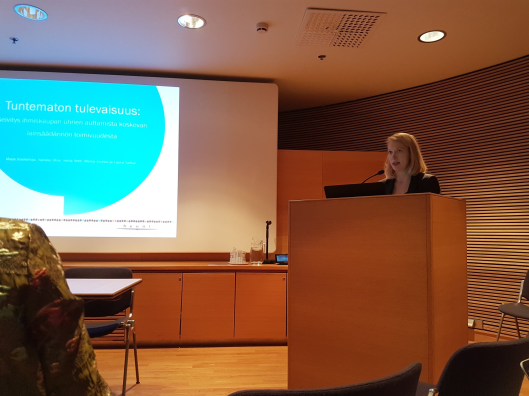The principles of criminal justice affect the assistance provided to victims of human trafficking

In March 2018 the Non-Discrimination Ombudsman and HEUNI published a joint study assessing the legislation that applies to assistance for victims of human trafficking in Finland. After the launch of the research findings, HEUNI has actively advocated for the rights of victims of trafficking following the recommendations made in the study. The study was incorporated into the report of the Non-Discrimination Ombudsman to the Parliament, and HEUNI was called to two Parliamentary hearings to present its view on the need for legislative changes.
The research has two key findings: first, that the social and health administration in municipalities is not familiar with the law that applies to the assistance to victims of human trafficking and as a consequence, victims of trafficking do not always receive the statutory services they would be entitled to. There is also significant differences between municipalities, and the awareness of the obligations towards victims of trafficking, leading to an unequal treatment of victims depending on which municipality they happen to reside in. Second, the research shows that there is a strong link between the provision of assistance to victims of trafficking and the criminal justice process, and as a consequence, a significant share of victims of trafficking do not seek help from the authorities. The fact that assistance to victims of trafficking is tied to the criminal process and its outcome, both prevents victims of human trafficking from seeking assistance from the authorities and removes them from the remit of assistance if and when the criminal justice process is terminated.
The research consequently suggests that there is a need to enact a special act on assistance for victims of human trafficking, where the link between assistance and the criminal justice process is alleviated. Should a separate new act not be possible, the relevant authorities should issue clear instructions to municipalities on how to apply the current law.
In order to roll out the findings of the research and the recommendations, HEUNI staff members have presented the results of the study at several events. These include lectures for social and health care workers, counsellors, researchers, and practitioners.
The summary of the research and the recommendations are available in English here


